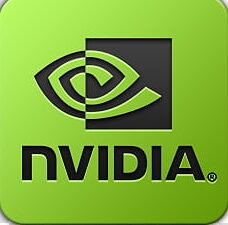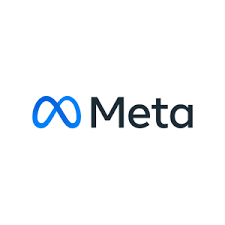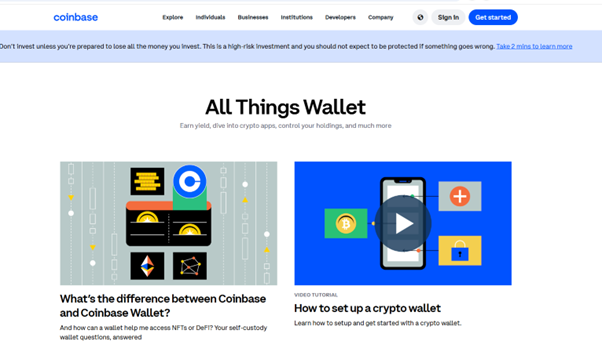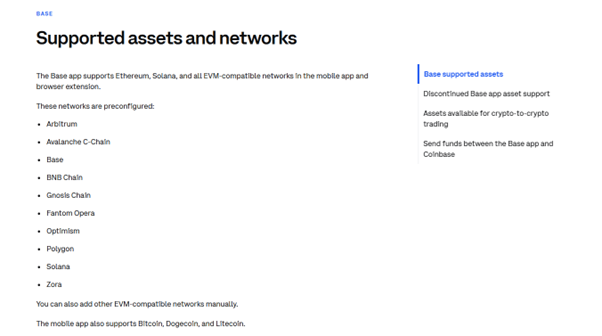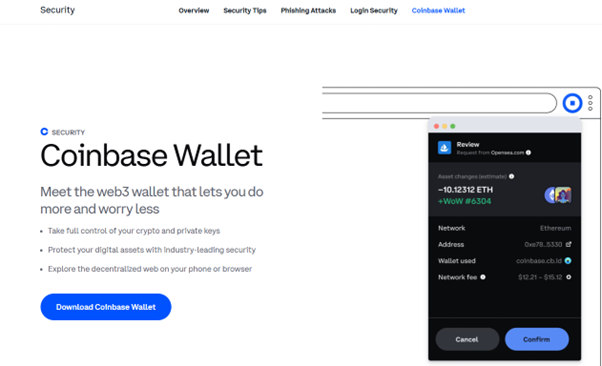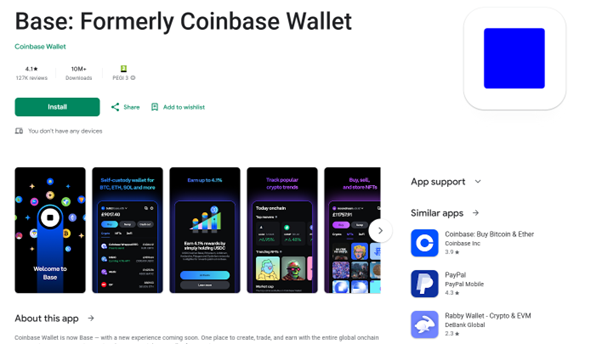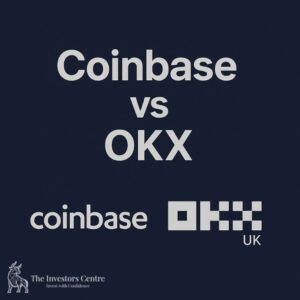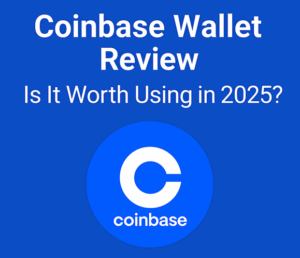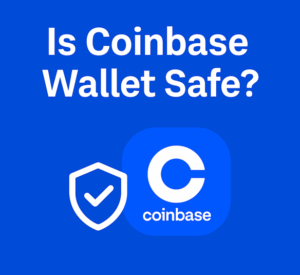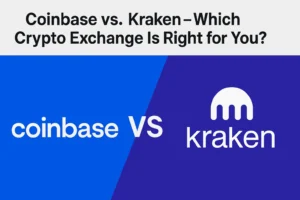Coinbase Wallet Review 2026 – Is It Still Worth Using?

- expertise:
- CFD Trading, Forex, Derivatives, Risk Management
- credentials:
- Chartered ACII (2018) · Trading since 2012
- tested:
- 40+ forex & CFD platforms with live accounts

- expertise:
- Platform Testing, Cryptocurrency, Retail Investing
- credentials:
- Active investor since 2013 · 11+ years experience
- tested:
- 50+ platforms · 200+ guides authored

- expertise:
- Broker Comparison, ISA Strategy, Portfolio Management
- credentials:
- Active investor since 2013 · 11+ years experience
- tested:
- 40+ brokers with funded accounts

- expertise:
- CFD Trading, Forex, Derivatives, Risk Management
- credentials:
- Chartered ACII (2018) · Trading since 2012
- tested:
- 40+ forex & CFD platforms with live accounts

- expertise:
- Platform Testing, Cryptocurrency, Retail Investing
- credentials:
- Active investor since 2013 · 11+ years experience
- tested:
- 50+ platforms · 200+ guides authored

- expertise:
- Broker Comparison, ISA Strategy, Portfolio Management
- credentials:
- Active investor since 2013 · 11+ years experience
- tested:
- 40+ brokers with funded accounts
How We Test
Real accounts. Real money. Real trades. No demo accounts or press releases.
What we measure:
- Spreads vs advertised rates
- Execution speed and slippage
- Hidden fees (overnight, withdrawal, conversion)
- Actual withdrawal times
Scoring:
Fees (25%) · Platform (20%) · Assets (15%) · Mobile (15%) · Tools (10%) · Support (10%) · Regulation (5%)
Regulatory checks:
FCA Register verification · FSCS protection
Testing team:
Adam Woodhead (investing since 2013), Thomas Drury (Chartered ACII, 2018), Dom Farnell (investing since 2013) — 50+ platforms with funded accounts
Quarterly reviews · Corrections: [email protected]
Disclaimer
Not financial advice. Educational content only. We're not FCA authorised. Consult a qualified advisor before investing.
Capital at risk. Investments can fall. Past performance doesn't guarantee future results.
CFD warning. 67-84% of retail accounts lose money trading CFDs. High risk due to leverage.
Contact: [email protected]

Quick Answer– Is Coinbase Wallet Right for You?
Coinbase Wallet is a top-tier non-custodial crypto wallet built for Web3, NFTs, and full asset control. While it’s powerful and secure, it’s less suited to beginners due to complex interfaces, no password recovery, and the need to manage gas fees manually.
What’s New in 2026 for Coinbase Wallet
In 2026, Coinbase Wallet continues to evolve beyond a basic self-custody wallet, with a stronger focus on usability, security, and Web3 access. Recent updates have improved how users interact with decentralised apps, manage token permissions, and explore NFTs across multiple blockchains.
The wallet now offers smoother multi-chain support, clearer transaction previews, and better warnings around risky smart contract approvals. These changes are designed to help users stay in control of their assets while reducing common Web3 security risks.
Coinbase Overview
- Minimum Deposit: No fixed minimum (buy crypto from as little as £2 / $2)
- Buy, sell, and trade Bitcoin, Ethereum, and hundreds of other cryptocurrencies
- Regulated in the US and trusted by over 100 million users worldwide
- User-friendly app and web platform with secure wallet storage
- Ideal for beginners and experienced investors seeking easy access to the crypto market
Don’t invest unless you’re prepared to lose all the money you invest. This is a high-risk investment and you should not expect to be protected if something goes wrong. Take 2 mins to learn more.
What Is Coinbase Wallet?
Coinbase Wallet is separate from the Coinbase exchange. It’s a non-custodial crypto wallet app that lets users store, manage, and transfer digital assets independently of Coinbase.com, including NFTs and dApps, while keeping full control over private keys.
Custodial vs Non-Custodial – What’s the Difference?
A custodial wallet holds your crypto for you (like a bank), while a non-custodial wallet gives you complete control over your assets and private keys. Coinbase Wallet is non-custodial, meaning only you can access your funds — Coinbase can’t retrieve them.
What Coins and Tokens Does Coinbase Wallet Support?
Coinbase Wallet supports a wide range of cryptocurrencies, including Ethereum-based tokens, Bitcoin, Solana assets, stablecoins like USDC, and even NFTs. It’s designed to interact with multiple blockchains, making it versatile for DeFi users, NFT collectors, and long-term holders.
| Asset | Supported |
|---|---|
| BTC | Yes |
| ETH | Yes |
| USDC | Yes |
| NFTs | Yes |
| SOL | Yes |
Does Coinbae Wallet Offer Full Private Key Control?
Yes — Coinbase Wallet is non-custodial, meaning you hold your own private keys. That gives you full ownership of your crypto but also full responsibility, including secure backup of your recovery phrase. Coinbase cannot access or recover your assets.
What Security Features Protect Your Crypto?
The app includes biometric authentication, secure recovery phrases, and open-source code for transparency. But since it’s non-custodial, security depends on your device and how well you store your keys — there’s no FSCS protection or password reset if you lose access.
How Much Does Coinbase Wallet Cost to Use?
| Fee Type | Cost | Notes |
|---|---|---|
| Wallet Setup | Free | |
| Network Fees | Varies | Paid to miners |
| Transfers to Coinbase | Free | |
| Gas Fees | Yes | Ethereum-based |
Coinbase Wallet is free to download and use. However, users must pay blockchain network (gas) fees when sending or swapping tokens. These vary by network traffic. There are no fees for transfers between Coinbase Wallet and the main Coinbase exchange.
What Are the Key Features of Coinbase Wallet?
Coinbase Wallet supports NFTs, staking, Web3 applications, and connects to Ethereum, Solana, and more. Its built-in dApp browser and multi-chain support make it ideal for decentralised finance, NFT trading, and accessing blockchain tools from one unified interface.
| Feature | Available |
|---|---|
| NFT Support | Yes |
| dApp Browser | Yes |
| Staking | Yes |
| Web3 Access | Yes |
| Multi-Chain | Yes |
Is It Good for Web3 Users and NFT Traders?
Yes. Coinbase Wallet is excellent for users active in NFT marketplaces, staking platforms, and decentralised apps. With multi-chain access and a built-in dApp browser, it’s ideal for exploring Web3 tools and interacting with smart contracts directly from your mobile or browser.
What are the supported tokens and networks on Coinbase Wallet?
Coinbase Wallet supports a growing list of crypto assets across major blockchains. The CSV below shows the key networks and token standards currently available.
| Network | Token Standard | Examples |
|---|---|---|
| Ethereum | ERC20 | USDC LINK AAVE |
| Solana | SPL | SOL BONK USDT |
| Base | Native ETH compatible | ETH USDC |
| Bitcoin | Native | Bitcoin |
| Polygon | ERC20 compatible | MATIC USDT DAI |
Description: Table listing supported networks and token standards within Coinbase Wallet including Ethereum Solana Base Bitcoin and Polygon.
What About Beginners or Long-Term Holders?
It may not suit beginners due to private key management and gas fees. Long-term holders seeking simplicity might prefer custodial solutions. Coinbase Wallet is best for users who want autonomy, not for those who prioritise ease of use or passive holding only.
Coinbase Wallet vs MetaMask – Which Is Better?
Both wallets are non-custodial and Web3-friendly. Coinbase Wallet is more beginner-focused with a cleaner interface, while MetaMask offers greater flexibility for advanced users. Choose Coinbase for simplicity and mobile-first use; MetaMask if you need complex dApp interactions and browser extensions.
| Feature | Coinbase Wallet | MetaMask |
|---|---|---|
| Platforms | Mobile & Browser | Browser |
| Token Support | Broad | Broad |
| Custody | Non-custodial | Non-custodial |
| Ease of Use | Moderate | Advanced |
What are Coinbase Wallet’s pros and cons?
Coinbase Wallet offers strong security and control but isn’t perfect. It’s built for users comfortable with managing their own crypto. Below is a concise breakdown of its key advantages and disadvantages.
Pros
Full control of private keys
Supports multiple blockchains
Integrated dApp browser
Backed by Coinbase’s reputation
Cons
No password recovery
Gas fees can be high
Limited fiat on-ramp options
Requires user security awareness
What issues do users commonly face with Coinbase Wallet?
Users often encounter minor usability and security challenges. Most issues stem from misunderstanding non-custodial control or blockchain network delays. The most frequent problems are listed below.
Lost recovery phrase leading to permanent loss
Gas fees during high network traffic
dApp connection or transaction errors
Confusion between Coinbase Wallet and Coinbase Exchange
Final Verdict – Is Coinbase Wallet Worth It?
Buy, sell, and grow crypto simply
- Invest from £2
- Earn crypto rewards
- Stake & earn up to 6%
Don’t invest unless you’re prepared to lose all the money you invest. This is a high-risk investment and you should not expect to be protected if something goes wrong. Take 2 mins to learn more.
FAQs
Is Coinbase Wallet non-custodial?
Yes. Coinbase Wallet is fully non-custodial, meaning you control your private keys and assets. Unlike the main Coinbase exchange, the wallet gives you full ownership of your crypto, including the ability to connect with Web3 dApps and manage assets independently.
Can I store NFTs in Coinbase Wallet?
Yes. Coinbase Wallet supports NFTs on Ethereum and other compatible blockchains. You can store, view, and transfer NFT assets directly within the wallet, and it integrates easily with marketplaces like OpenSea for buying, selling, and browsing collections.
Is Coinbase Wallet free to use?
Yes, the wallet is free to download and use. However, standard blockchain network fees (like Ethereum gas fees) apply when making transactions. There are no platform fees for sending, receiving, or holding assets, including NFTs and ERC-20 tokens.
Do I need a Coinbase account?
No. Coinbase Wallet is separate from the main Coinbase exchange. You don’t need a Coinbase account to use it. That said, you can connect the wallet to your Coinbase account for easy transfers between your wallet and exchange if needed.
Is Coinbase Wallet safe for beginners?
While secure, Coinbase Wallet may be complex for total beginners. Users must manage private keys and understand blockchain fees. It’s safer than most browser-based wallets but still requires careful handling — especially when connecting to dApps or storing high-value assets.


